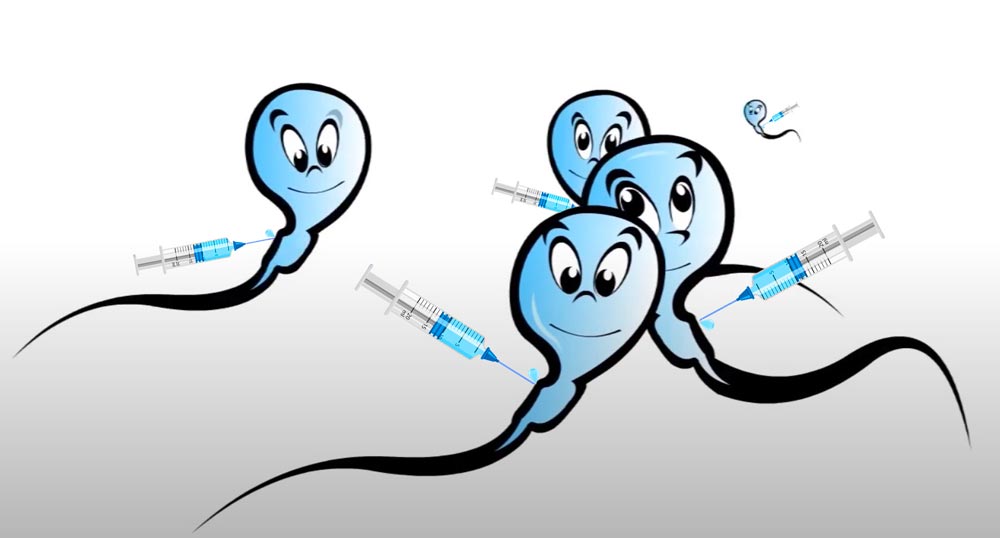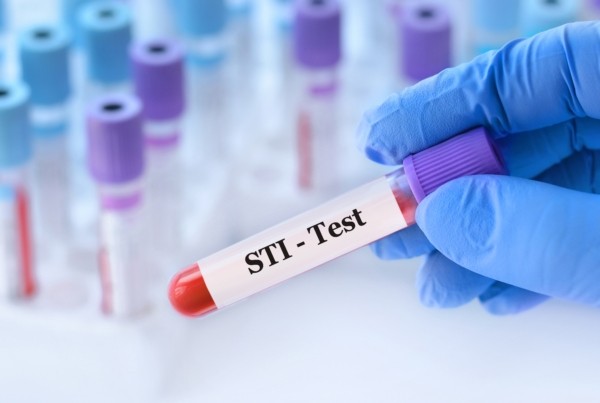The COVID-19 Vaccine and Fertility
2020 and 2021 will indeed go down as years to remember. While undeniably challenging, COVID-19 gave us a new definition of personal hygiene and made it okay to work in pajamas. Despite the American Society for Reproductive Medicine (ASRM) issuing recommendations to temporarily halt fertility treatments in March 2020, couples may have enjoyed more stay-at-home time working on their pregnancy goals the natural way.
When Pfizer released data from its vaccine trial in November 2020 showing it to be 95% effective, most breathed a sigh of relief, but some had questions.
For couples who were put on hold during the pandemic, vaccines offer hope of returning to a semblance of normality. Still, the first question for those trying to conceive becomes: How do the COVID-19 vaccines affect my fertility, pregnancy, and baby. In this article, our team looks at COVID-19 vaccines and fertility – the myths, facts, and nitty-gritty details.
Firstly, how does the vaccine work?
Vaccines are a safe way of teaching the body’s immune system to fight the COVID-19 virus. Scientists have found several ways of doing this:
- Viral vector vaccines (Oxford-AstraZeneca, Johnson & Johnson, Sputnik V) – Weakened viruses carrying part of the COVID-19 genetic material triggers natural antibody production. Your body now recognizes COVID-19 and can fight it off in the future
- Messenger RNA (mRNA) vaccines (Pfizer-BioNTech, Moderna) – Uses instructions in the form of engineered mRNA particles. Immune cells exposed to these instructions then learn how to make bits of the COVID-19 surface proteins, allowing your body to form antibodies against COVID-19, which fights off future infections
- Inactivated vaccines (Sinovac, Sinopharm, Bharat Biotech) – Contains killed COVID-19 viruses which trigger an immune response but does not cause illness
All efforts went into ensuring these vaccines were created safely despite the faster than usual approach warranted by the scale of the global pandemic. You cannot catch COVID-19 from these vaccines. As with every vaccine, some side effects can be expected, such as pain at the injection site, fever, headache, muscle pain, and tiredness. You may also experience an allergic reaction in rare cases, which is treatable. These symptoms mean that your body is mounting an immune response towards the virus to battle it down the road.
Depending on the type of vaccine and the manufacturer, you may need one or two shots before you are protected, and you should not consider yourself fully vaccinated for two weeks after your last shot.
Do the vaccines affect fertility?
Organizations worldwide, including the Centers for Disease Control and Prevention (CDC) of the United States, the Australian Department of Health, the British Fertility Society, and Association of Reproductive and Clinical Scientists, have systematically refuted that the COVID-19 vaccine has any impact on fertility. Additionally, extensive studies revealed that previous COVID-19 infections do not have long-term effects on sperm and eggs (2) and A Male Fertility Clinical Trial looking at the impact of the COVID-19 vaccine on semen quality is currently underway and is expected to be completed in June 2021.
I’m pregnant! Can I receive the vaccine?
The American College of Obstetricians and Gynecologists (ACOG) recommends that all pregnant women should be provided with the option of getting vaccinated. In addition, pregnant women are encouraged to discuss their options with their healthcare providers first. Current data suggests that pregnant women are at a higher risk than non-pregnant individuals for more severe COVID-19 illness, admission into an intensive care unit, invasive ventilation, and death (5).
The V-safe Pregnancy Registry is a CDC initiative that contains data of more than 100,00 pregnant women who have been vaccinated. As of April 2021, investigators did not find any red flags among pregnant women who received mRNA COVID-19 vaccines. Adverse effects between pregnant and non-pregnant women were found to be the same (6).
The lack of randomized controlled trials in pregnant women receiving the vaccination is nothing out of the ordinary, as this vulnerable group of patients may often be excluded from clinical trials. However, analysis of the evidence suggests that the safety and efficacy of the current vaccines should be the same between pregnant and non-pregnant individuals.
To wrap things up
Getting vaccinated is indeed a personal choice. However, rest assured that your fertility will be protected whether you decide to get the shot or not. For those who have yet to be vaccinated and would like to avoid unnecessary contact at healthcare centers learning about their sperm, our YO Home Sperm Testing Kits allow you to safely and accurately assess yourself from the privacy of your home.
The CDC has recently issued a statement saying that fully vaccinated people may resume activities without wearing a mask or physically distancing (except where required by local policies). So, despite the long period of change, we can all appreciate some light at the end of the tunnel as we start pulling through this together.
References
-
(1) Schlake T, Thess A, Fotin-Mleczek M, Kallen K-J. Developing mRNA-vaccine technologies. RNA Biol. 2012;9(11):1319-30.
-
(2) Stanley KE, Thomas E, Leaver M, Wells D. Coronavirus disease-19 and fertility: viral host entry protein expression in male and female reproductive tissues. Fertil Steril. 2020;114(1):33-43.
-
(3) Shanes ED, Otero S, Mithal LB, Mupanomunda CA, Miller ES, Goldstein JA. Severe Acute Respiratory Syndrome Coronavirus 2 (SARS-CoV-2) Vaccination in Pregnancy: Measures of Immunity and Placental Histopathology. Obstetrics & Gynecology. 9900; Latest Articles.
-
(4) Rasmussen SA, Jamieson DJ. Pregnancy, Postpartum Care, and COVID-19 Vaccination in 2021. JAMA. 2021;325(11):1099-100.
-
(5) Zambrano LD ES, Strid P, et al. . Update: Characteristics of Symptomatic Women of Reproductive Age with Laboratory-Confirmed SARS-CoV-2 Infection by Pregnancy Status — United States, January 22–October 3, 2020. . MMWR Morb Mortal Wkly Rep 2020. 2020;69:1641 – 7.
-
(6) Shimabukuro TT, Kim SY, Myers TR, Moro PL, Oduyebo T, Panagiotakopoulos L, et al. Preliminary Findings of mRNA Covid-19 Vaccine Safety in Pregnant Persons. New England Journal of Medicine. 2021.







